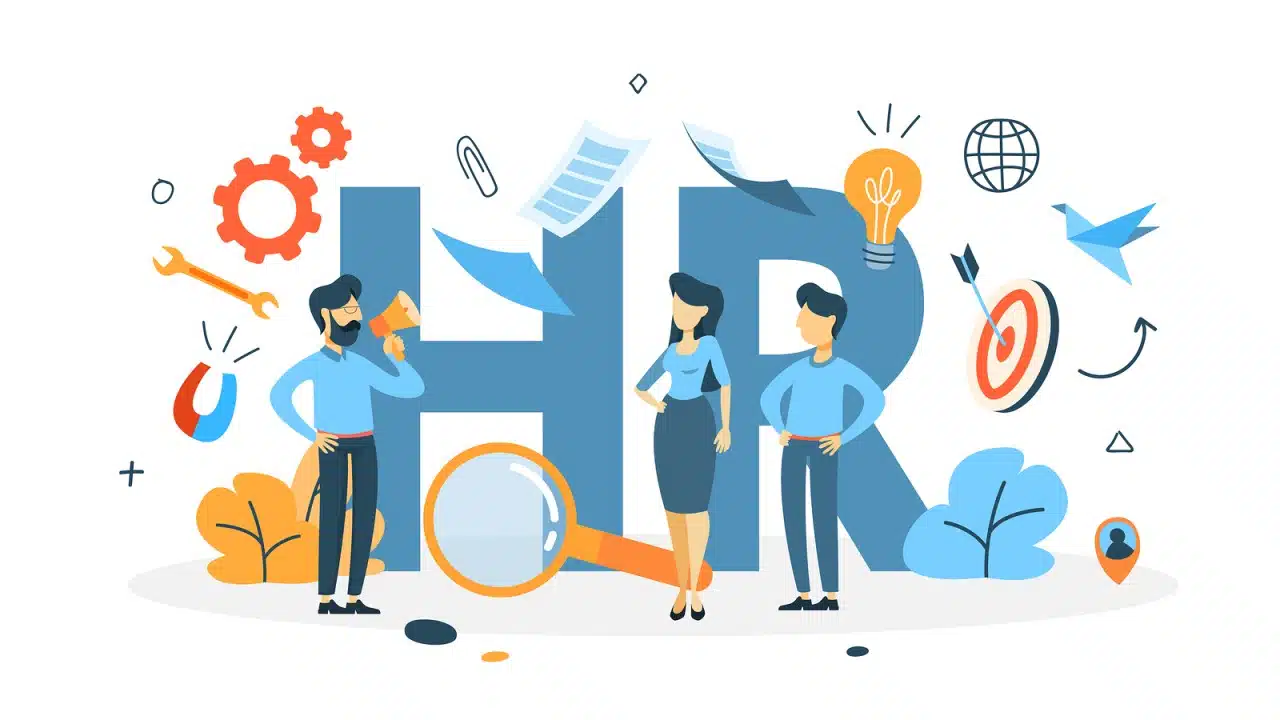Do you know How To Hire A Career Coach? Hiring a career coach can be an important step in achieving your goals and advancing your career. Working with a professional coach can help you develop the skills and strategies necessary to achieve success.
It is important to take time to research potential coaches, evaluate different approaches, and consider what will work best for you. This article provides information on how to find the right career coach for your needs.
The process of hiring a coach involves understanding what type of services you need, researching qualified professionals, asking for referrals from trusted sources, evaluating different coaching approaches, scheduling an initial consultation, discussing goals and expectations between both parties and making a decision that is right for you.
By taking these steps and assessing the available options carefully, you can ensure that you are hiring the right person who can help guide you along your path toward success.
READ ALSO: How Does A Career Coach Work?
How To Hire A Career Coach

#1. Understand Your Needs
Identifying and evaluating individual requirements for successful career advancement is an important step in the process of achieving professional goals. It requires self-reflection and an honest assessment of what steps are necessary to move forward.
To identify objectives, it is essential to consider one's current situation and ask questions like: What is my current job title? What do I want it to be? Do I need additional training or education? Additionally, it is important to reflect on goals that have been set in the past and determine whether they are still relevant or if they need updating.
Defining success involves setting realistic expectations based on personal strengths, weaknesses, interests, and values. This can include factors such as salary level, desired work environment, amount of travel involved in a position, job stability, or growth potential. Evaluating these parameters will enable a person to make informed decisions about their desired career path.
Career coaching offers an effective way to gain clarity on these issues and develop strategies for achieving them. Through working with a coach who has expertise in the field of career development, individuals receive personalized guidance tailored to their specific needs.
During sessions with a coach people can explore approaches for creating meaningful plans that lead to successful outcomes while gaining insight into their abilities and motivations related to pursuing their ideal career path. Moreover, coaches provide support throughout the entire process so that individuals stay focused on reaching their professional goals effectively and efficiently over time.
The first step towards finding the right coach is conducting research into qualified professionals who specialize in providing career coaching services.
Taking this action allows prospective clients to understand which type of specialist best suits their particular situation before committing further resources to obtain services from someone who may not adequately meet all of their requirements for success.
READ ALSO: How to Develop Strong Work Ethics
#2. Research Qualified Coaches
Comprehensively researching potential instructors is an essential step in the process of selecting a qualified professional to assist with career advancement. It is important to consider the qualifications, experience, and expertise of any individual that may be hired as a coach.
Potential candidates should have an established history of providing tailored advice on topics such as interview tips, resume writing, and job search strategies. Furthermore, they should have a deep understanding of the current job market landscape and be able to provide valuable feedback and resources for those seeking employment or career advancement opportunities.
When looking for a qualified coach it is important to take into account their educational background as well as any certifications related to coaching or career development they might possess. Additionally, research into recommendations from previous clients can also be beneficial when deciding who would best suit one's needs.
Reviews from past customers can help gauge the level of service provided by prospective coaches and offer invaluable insight into working with them in the future.
In order to ensure you are getting quality services it is necessary to seek out references from other professionals who have had successful working relationships with coaches in the past before making any final decisions about hiring someone for your own personal development journey.
Doing so will ensure that you receive comprehensive guidance from an experienced professional who understands your specific needs and has proven results in their field.
READ ALSO: Career Coach vs Recruiter: What Is The Difference
#3. Ask for Referrals
Gathering referrals from industry professionals is a key step in finding a qualified individual to support your professional development. Asking around for recommendations and checking reviews can provide valuable insight into the type of coaching provided by certain individuals, as well as their knowledge and experience in the field.
Additionally, gaining feedback from those who have actually worked with the coach can help uncover any potential issues that may arise during the process.
When asking for referrals, it is important to ensure that you are taking into account all aspects of what you want out of a coach before committing. It is also vital to include questions regarding their qualifications, experience level, areas of expertise, and any other relevant factors that can help you make an informed decision on who would be best suited for your needs.
It is essential to determine if a career coach will be able to fulfill your specific requirements and expectations prior to engaging in any kind of professional relationship.
Taking the time to research coaches thoroughly and asking for referrals from trusted sources can put you one step closer to finding the ideal individual for your career development journey.
READ ALSO: How to Find Seasonal Jobs Near Me That Is Hiring Now
#4. Consider Different Coaching Approaches
Examining various coaching approaches can provide insight into which style of support may be most beneficial for a professional development journey. Different types of coaching exist, and the approach taken by each coach can vary significantly.
It is important to explore options, evaluate costs, and consider the type of guidance that will be most effective in achieving desired outcomes.
Career coaches often specialize in different areas, such as helping clients secure a promotion or transition into a new role within their current company. Others might focus on resume writing and job search strategies, while still, others specialize in career assessment and exploration.
Furthermore, some coaches are better suited for those who prefer an individualized plan with regular check-ins over extended periods of time; whereas other methods might involve group sessions or one-time consultations.
The approach chosen should depend on the objectives identified by the client and their comfort level with different types of coaching styles.
Evaluating these factors carefully will help ensure that the best possible solution is found to meet individual needs and goals during this process. Ultimately, aligning with a coach whose mode of delivery resonates well can make all the difference when it comes to gaining clarity about the next steps in one's career path.
#5. Evaluate Your Options
With an abundance of coaching approaches to choose from, one must carefully consider their options in order to find the most suitable solution for their professional development journey.
It is important to take the time to fully understand and examine the credentials of each coach they are considering. There should be a clear understanding of what qualifications and experience a potential coach has that would make them well-suited for helping with career decisions or job transitions.
In addition, it is essential that a prospective coach's values align with those of the individual seeking guidance. This helps ensure both parties will have a productive and successful relationship based on mutual trust and respect.
Furthermore, many coaches specialize in certain areas such as resume writing, job interviewing techniques, or negotiating salaries; so it is important to find someone who can provide the service specific to your needs.
Taking the time to thoroughly evaluate all available options can help you identify which career coach may be best suited for you and provide you with the most beneficial resources needed during your professional development journey.
With this information at hand, one can confidently schedule an initial consultation knowing they have made an informed decision about who would be best able to assist them as they pursue their goals.
READ ALSO: Best Hiring Season To Apply For Jobs
#6. Schedule an Initial Consultation
Once you have evaluated your options for hiring a career coach, it is important to schedule an initial consultation. This consultation is key in assessing the fit and developing a pricing model.
It provides the opportunity for both parties to create an understanding of expectations and desired outcomes from the relationship.
The purpose of the initial consultation is twofold: first, it allows the client to develop a clear understanding of who they are working with and how their needs will be met.
Second, it gives the coach an opportunity to assess whether they can confidently work with the client in helping them achieve their goals.
Although some coaches offer complimentary initial consultations, others may charge a fee for this session or require potential clients to sign up for one of their packages first.
During this meeting, both parties should discuss goals and expectations for their work together as well as any questions that either side has about working with each other. They should also review any relevant paperwork required by either party such as contracts or waivers before signing off on anything.
After this discussion, both sides can decide if they feel comfortable continuing forward with each other and creating an actionable plan that works towards achieving those goals collaboratively.
#7. Discuss Your Goals and Expectations
During the initial consultation, both the client and coach should outline their desired outcomes and expectations for the partnership. This is an important step in determining if there is a good fit between the two parties.
Brainstorming solutions and establishing priorities can help to ensure that the objectives of each individual are aligned and that any miscommunication or misunderstanding can be avoided.
The coach should also ask questions about what kind of outcome the client wishes to achieve from working together. These questions may include topics such as career goals, skills development, job search strategies, financial considerations, and other relevant topics related to achieving success in one's chosen field.
Establishing these clear expectations will help to ensure that both parties are on the same page during their professional relationship.
It is also important for both parties to discuss any potential obstacles or challenges they may face during their work together. Identifying these issues early on can help minimize any surprises down the road, allowing for more effective collaboration between coach and client.
Additionally, it allows both individuals ample time to decide if they feel comfortable moving forward with this partnership before making a commitment.
#8. Make Your Decision and Get Started
After evaluating the goals and expectations of both parties, it is time to make a decision and begin the journey.
Identifying priorities and creating action plans are essential in ensuring that both parties are on the same page with respect to desired outcomes. It is important to remember that this process does not need to happen all at once – both coach and client can work together over time as progress is made.
The next step is for the client to decide which approach works best for them in order to reach their career goals. This could include developing an action plan with a mentor or taking online courses; these decisions should be based on individual needs, such as budget constraints or timeline considerations.
Once they have considered all their options, they can move forward with hiring a career coach who will help them create realistic objectives and provide guidance throughout the process.
As the coaching relationship begins, it will be critical for both parties to establish trust early on by setting clear boundaries and expectations upfront.
Working together in this way ensures that everyone remains focused on reaching mutually beneficial goals while also establishing a positive working environment where honesty, understanding, and respect are paramount.
READ ALSO: Best IT Jobs With No Degree You Can Apply For
Frequently Asked Questions
How much does a career coach typically cost?
The cost of a career coach can vary greatly depending on their experience and qualifications.
Generally speaking, coaches with extensive knowledge of the job market, resume tips and other related topics will charge more than those with less expertise.
Many coaches also offer a sliding scale to make their services more accessible.
It is important to note that regardless of the cost, the advice and guidance provided by an experienced career coach can help individuals achieve success in their job search.
What qualifications should I look for in a career coach?
It is essential to carefully consider the qualifications of a career coach when making a hiring decision.
A successful candidate should have a strong academic background in psychology, career development, and/or human resources.
Additionally, they should possess relevant experience in job search guidance and interview preparation. Their knowledge should be evidenced by certifications from accredited universities or professional organizations specializing in career coaching.
Moreover, they must demonstrate an understanding of current trends and best practices within their field as well as exhibit compassionate, knowledgeable communication skills with clients.
How long should I expect the coaching process to take?
The coaching process for job-seeking and career goals can vary depending on the individual.
Generally, it is expected that a coach will work with the client over an extended period of time, ranging from as little as a few months to as long as a year or more.
During this time, the coach will assist their client in developing actionable plans for reaching their desired goals, help them identify any potential challenges they may face along the way, and provide ongoing support and encouragement throughout the entire process.
Are there any online resources or tools that I can use to supplement my coaching sessions?
Peer mentoring and career assessments are two online resources that career coaches can use to supplement their coaching sessions.
Peer mentoring allows individuals to receive support from someone who has had a similar experience, allowing for an exchange of knowledge, ideas, and experiences.
Career assessments provide insights into strengths, weaknesses, interests, and values that may not be obvious to the individual. They can also help identify areas that need further development or exploration in order to achieve the desired goals.
These tools aid in creating a personalized approach to career coaching and can be beneficial when used in conjunction with one-on-one or group sessions with a certified professional coach.
What should I do if I'm not satisfied with the results of my coaching sessions?
When engaging with a career coach, it is important to explore all options and find resolutions if the desired results are not achieved.
If an individual is not satisfied with the results of their coaching sessions, they should discuss this with their coach and express any concerns or questions they may have.
It is also beneficial to reflect on what accomplishments have been made during their time working together, as this can provide insight into areas for improvement in the future.
Additionally, seeking out further advice from other professionals could be beneficial in furthering one's career goals.
Conclusion
In conclusion, hiring a career coach can be a beneficial endeavor for those seeking to make a significant change in their professional lives.
While researching qualified coaches and evaluating potential options, it is important to consider different coaching approaches and whether they align with one's goals.
Moreover, asking for referrals from trusted sources can be an effective way to find the right fit.
Ultimately, by taking the time to identify needs and reflect upon expectations, it is possible to discover a coach who suits individual requirements and helps facilitate success in both the short-term and long-term future.
With this knowledge in tow, one may confidently step into the world of career coaching with eyes wide open.
Thank you for reading our article today! Please remember to share this article on social media to help others benefit too. It also helps us improve our algorithm and relevance to the public. Thanks for Sharring!!! Follow us on Socials: Facebook - LinkedIn - Twitter
Discover more from iParrot Jobs
Subscribe to get the latest posts sent to your email.








